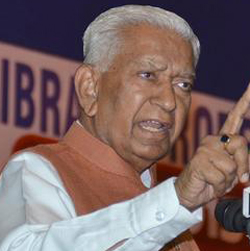
Mangaluru, July 31: Kanara Chamber of Commerce and Industry (KCCI) has unveiled a campaign both on digital media and outdoor billboards on bringing awareness on the right usage of masks, social distancing and hand washing in the fight against COVID19. The campaign has received very good response and attention on social media and with the citizens of Mangaluru.
While the numbers of Covid-19 infected people were increasing and a vaccine would take some more time it was observed that norms of social distancing and other precautionary practices were thrown to the wind. Many people in Dakshina Kannada were found using masks inappropriately. Wearing a mask in a scientific way by covering both the nose and mouth is imperative to control droplets that spread the virus. We need to rise above our inconvenience to fight the virus.
Considering this the KCCI found an immediate need to bring awareness and constant reminder to people on the right usage of masks, social distancing, washing hands and other dos and don’ts to stay ahead of the virus and beat the pandemic.
A digital campaign and an outdoor advertisement campaign were planned by the chamber to remind and encourage people to follow best practices when interacting with others.
The theme of the Campaign was decided to be “Let’s Fight Back Together” Origin Designext a Creative Agency in Mangalore was roped in to do the creative for the campaign and a team from KCCI worked with the Agency to shape up the campaign with their inputs. In the meantime Indian Red Cross Society Dakshina Kannada and Rotary Mangaluru expressed their interest to support the Campaign.
Mangaluru based outdoor agencies like Jyothi Advertisers, Kalkura Advertisers and Gee Dee Advertisers agreed to provide outdoor space gratis to this community service campaign. Presented both in English and Kannada, the campaign has been creating waves on social media and on the street, a sign that it is being very well received by the populace of Mangalore city.
The creative of Half Covered or Half exposed where a model is shown with a mask that exposes the nose and KA-19 v/s COVID-19 (KA-19 being the Vehicle Registration Code for the District) have been particularly making a buzz in the community. All together 14 hoardings are currently on display with various Covid-19 awareness messages. Many business houses have shown interest to participate in this public awareness campaign.
The Chamber hopes this campaign would go a long way in the fight of the city against COVID-19 and play its role in putting the pandemic behind us. “Businesses and our economy has suffered enough, we need to work together to fight this virus, we need to rise above minor inconvenience and win this war,” says Isaac Vas the President to KCCI.
.jpg)
.jpg)
.jpg)
.jpg)
 Speaking at the valedictory event of the Indian Science Congress here, Mr Vala who has a strong RSS background, expressed displeasure over college girls wearing lipstick and trimming their eyebrows.
Speaking at the valedictory event of the Indian Science Congress here, Mr Vala who has a strong RSS background, expressed displeasure over college girls wearing lipstick and trimming their eyebrows.




.jpg)
.jpg)
.jpg)
.jpg)
Comments
Can this be a speech in Science Congress?
These jokers need to be thrown out immediately
It is a inbuilt nature in girls and womens that they love to beautify themselves but it will be dangerous to her when she uncovers her beauty to all kind of men. Good men look other women in a respectable manner but there are bad men who look at different angle. So there is a hijab for women in Islam and hijab for men is to look down when he sees other women.
Add new comment